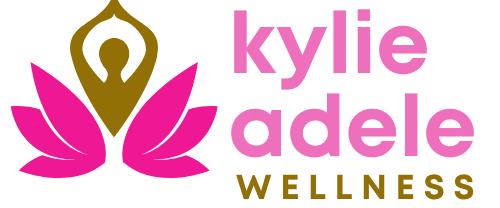What Is HRT? A Functional Approach to Hormone Therapy
Disclaimer: The recommendations presented are restricted to matters of general well-being. They are not intended for medical diagnosis, treatment, or the prescribing of medicine for any disease (including conditions diagnosed by a medical professional), or any licensed or controlled act that may constitute the practice of medicine. Kylie Adele is not a doctor.
You may have heard about hormone replacement therapy (HRT) um…EVERYWHERE if you are in your 40’s and 50’s. Maybe from a friend, your doctor, or scrolling on Instagram. But what exactly is it? And how do you know if it’s something worth considering?
Let’s break it down through the lens of functional and holistic health, using the framework Dr. Sara Gottfried and other integrative practitioners often teach.
The Hormones at the Center of the Conversation
When we talk about HRT, we’re usually referring to replacing or supplementing key reproductive hormones that naturally decline in perimenopause and menopause:
Estrogen (Estradiol, Estrone, Estriol) – Plays a role in bone density, heart health, skin elasticity, brain function, and mood regulation.
Progesterone – Helps with sleep, anxiety, heavy bleeding, and balancing the effects of estrogen.
Testosterone – Supports libido, muscle mass, bone strength, and mental sharpness.
DHEA – A precursor hormone that supports overall vitality.
Each of these has its own role, and not every woman needs all of them.
Types of HRT
HRT can be delivered in a variety of forms:
Estrogen therapy – pills, patches, gels, creams, or vaginal preparations.
Progesterone therapy – usually oral micronized progesterone or synthetic progestins.
Testosterone therapy – typically creams, gels, or compounded prescriptions (not widely available for women in Canada).
Synthetic vs. Micronized (Bioidentical)
This is a critical distinction:
Synthetic hormones are lab-made versions that don’t match the body’s natural molecular structure. Progestins, for example, are not the same as progesterone, and can carry higher risks (like increased clotting or breast cancer risk in certain populations).
Micronized or bioidentical hormones are chemically identical to the hormones your body makes. Micronized progesterone (often called Prometrium in Canada) is considered safer and better tolerated.
Dr. Sara Gottfried and many functional practitioners emphasize that form matters. The closer the hormone is to what your body recognizes, the smoother the integration.
Why Some Women Need HRT in Perimenopause
During perimenopause, hormones don’t decline in a straight line—they fluctuate wildly. This is why some women experience:
Heavy or irregular bleeding
Night sweats and hot flashes
Mood swings or anxiety
Sleep disruption
Brain fog
Loss of muscle or libido
For some women, lifestyle shifts, nutrition, and herbal support are enough. For others, these tools can “soften the edges” but don’t fully relieve the underlying hormone deficiency.
That’s where carefully prescribed HRT can step in as a supportive bridge.
Why You Might Only Need One Hormone
Not all women require a full “cocktail” of hormones. For example:
Progesterone only – If estrogen is still relatively high but progesterone is dropping, women may benefit from adding progesterone for sleep, mood, or heavy bleeding.
Estrogen only – For women who’ve had a hysterectomy and no longer need progesterone.
Testosterone or DHEA support – Sometimes added for energy, libido, or muscle preservation.
The goal is precision—treating what’s missing, not overloading what isn’t.
Who Do You See in Canada?
In Canada, the path usually starts with your family physician or a gynecologist, who can order hormone panels and discuss options. Some women also seek care from naturopathic doctors who are trained in hormone prescribing (coverage varies by province).
Here’s where I come in: in functional health, the recommendation is always to get a full reproductive panel before starting HRT, ideally including estradiol, progesterone, FSH, LH, testosterone, DHEA, thyroid markers, and sometimes cortisol and insulin.
I can help you:
Advocate for the right labs with your doctor
Understand what your results actually mean in a functional health context
Prepare questions for your prescribing provider
Support your body with nutrition, supplements, and lifestyle shifts so HRT (if chosen) works more effectively and safely
This is exactly the kind of work we do together in my 90-Day Hormone Reset—building the foundation your body needs so you can either thrive without HRT or integrate it with confidence and clarity.
The Risks of HRT
Like any medical therapy, HRT isn’t without risk. Depending on the type, dose, and delivery method, risks can include:
Blood clots (higher with oral synthetic estrogen)
Increased breast tenderness or spotting
Small increased breast cancer risk with certain synthetic progestins
Acne, hair growth, or mood shifts (with testosterone)
The good news: when prescribed thoughtfully (lowest effective dose, bioidentical when possible, and under supervision), many of these risks are minimized. Sarah Gottfried emphasizes individualization; your history, your genetics, and your lifestyle all matter.
The Bottom Line
HRT isn’t a “forever” solution for every woman, nor is it something to fear. It’s a tool- one that can dramatically improve quality of life when used appropriately.
The key is collaboration with your physician and staying informed about your own body. As a functional health practitioner, my role is to help you understand your labs, support your nervous system, and guide you in lifestyle practices that make hormone therapy more effective and safer.
If you’re curious about whether your hormones are in balance or want to explore what options might help, you can book a free discovery call with me. Together, we’ll map out what your body needs and whether my 90-Day Hormone Reset program can support you.

